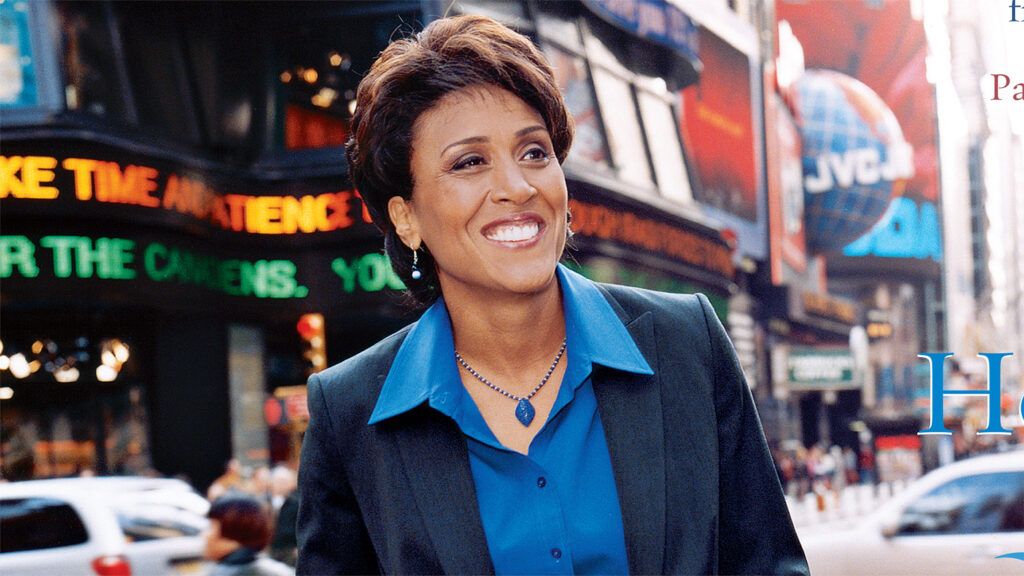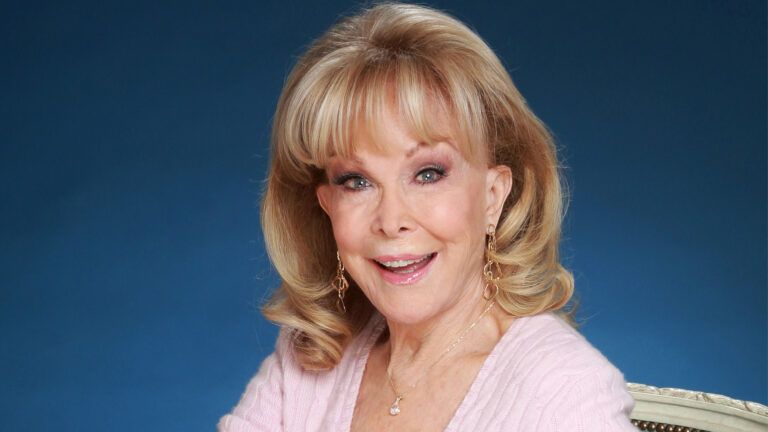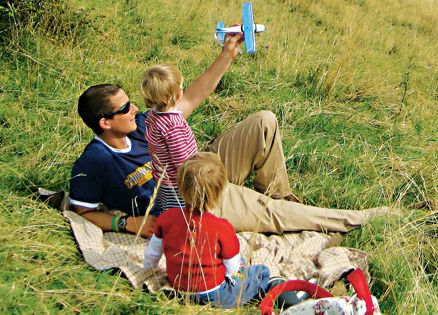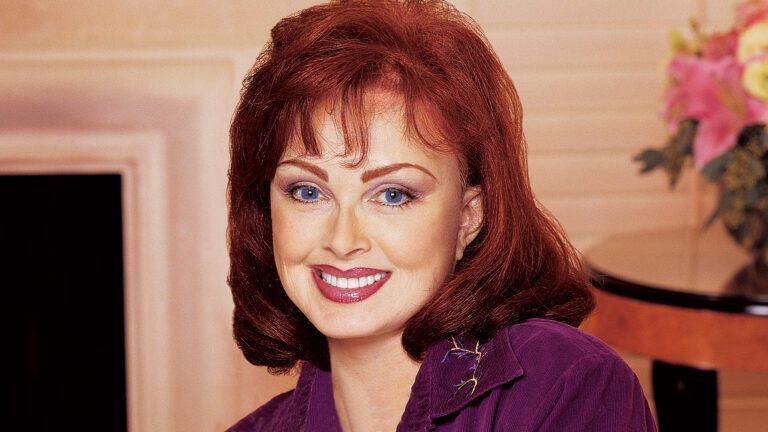You know how sometimes something happens in your life, something you never could have imagined, and gives you a new sense of clarity about who you are and why you’re here?
That’s what happened to me last year. Not last spring when I made my biggest career move, leaving sports broadcasting for the Good Morning America anchor desk, but six months ago when a hurricane slammed my hometown, knocking houses down to their foundations, literally, and rocking people down to theirs, spiritually.
Less than 12 hours after Hurricane Katrina hit Monday, August 29, 2005, I left my New York City apartment and jumped on a plane with the GMA crew, heading for the Gulf Coast, or at least the closest airport that was open.
That’s what we’re supposed to do as journalists, rush into the thick of things so we can report events as they happen. But for me, this was more than a professional assignment. This was personal.
I grew up on the Gulf Coast, in the small town of Pass Christian, Mississippi. I’ve lived up north for 15 years, working at ESPN and ABC, but the Pass, as we locals call it, will always be home.
My family still has a house on Oak Park Drive, the first house my parents bought together. My brother, two sisters and I all called it “our house,” even after Mom and Dad moved to a second home in Biloxi, to be closer to their medical care at Keesler Air Force Base. They’d go back to the Pass house often, though, because our church, First Presbyterian, was just across the bridge.
The last time I talked to my mother she was hunkered down in the Biloxi house with my sister Dorothy and her girls. Mom’s health issues would have made it difficult for her to evacuate.
Besides, our family had weathered some ferocious storms, starting with Hurricane Camille back in 1969, just three weeks after my father’s military career took us to the Gulf Coast. We could ride this one out, she figured.
“We’re not to be fearful,” Mom said. “Wherever we are, God is.” You couldn’t argue with faith as strong as that, faith that had sustained her after Dad’s death, and for all her 81 years.
But I sure wished I had. I wished I’d talked my mother into taking shelter inland. I hadn’t been able to get a call through to her since Katrina made landfall. There was no cell-phone service, no land lines, no way to get in touch.
All I could do, driving through the pitch-darkness after our flight landed that night in Lafayette, Louisiana, about 200 miles away, was hope and pray that my family had survived. And that somehow I would be able to get to them.
It was like driving on an obstacle course. We steered around downed power lines, abandoned cars, an overturned tanker. It took all night to cover those 200 miles. Even though our crew was trying to work out how we’d be able to broadcast live the next morning, the only thing going through my head was, Please, I want to find my mom, my sister, my family…
Around five o’clock Tuesday morning local time, we went down Pass Road into Biloxi. It truly hit me then, the magnitude of the devastation Hurricane Katrina had wreaked. I’ve traveled Pass Road 35 years of my life. I know it like the back of my hand. And I was lost. Totally lost. I looked around and around. Where were all the landmarks, all the things I knew?
I needed a police escort just to find my mother’s house. The tip of the roof was blown off, but otherwise it didn’t look too bad. I ran up to the door. Relief, joy, gratitude…I don’t have the words to describe the emotions that flooded through me when I walked in and saw my mom, safe and sound. It felt so good to hug her close.
“No TV, no TV cameras,” I heard my sister say. As if I could be thinking about work at a time like this! But you know, Dorothy was right about my personal and professional lives intersecting. It was only because of my job that I was able to get here and see my loved ones. So many others were still praying for some word. Once I made sure my family was okay, I rushed back to the satellite truck.
Good Morning America went live at 6 a.m. local time from Pass Road, not far from my mom’s. I reported on the incredible destruction I’d seen, trying to let people around the country know what it was like for folks down here on the Gulf Coast.
I was doing okay maintaining my journalistic objectivity, holding my feelings in check, until my co-anchor Charlie Gibson started asking me if my family was all right. “Your mom’s okay, your sister’s okay?” He kept at me. All at once, everything caught up with me, the emotional rollercoaster I’d been on the past 24 hours. I broke down and cried…on the air.
I couldn’t believe I’d lost my composure like that. I’m not one to let things get to me. You can’t when you’re an athlete, as I was in high school and college. And you can’t have parents like mine—my father, Lawrence, was one of the Tuskegee Airmen, the first black pilots in the United States military; my mom, Lucimarian, was an educator, the first in her family to go to college—without inheriting some of their determination and strength.
But there I was the next day, weeping again. The police finally let me into Pass Christian. I made a beeline for Oak Park Drive. Our house was still standing! I couldn’t go inside: The locks were corroded from saltwater and it was too dangerous to climb through a broken window. But I peeked in.
On the wall, up near the ceiling, I could see where the water line had been. I was thankful the damage hadn’t been worse.
I walked through our front yard and saw one of my old bowling trophies buried in the sludge. I picked it up and wiped it off. And a little part of me said, This is how you start to pick up your life again.
I headed downtown. It was surreal. The restaurant where I used to eat po’boys with my friends. The park, the tennis courts where I’d spent many hours honing my game. All gone. And my high school. It was the most picturesque red-brick schoolhouse. It had withstood Camille. But Katrina reduced it to nothing but steps leading up to a pile of rubble.
Seeing my town, the place that was the center of my life for so many years, wiped out…that’s when tears overcame me again. Our house being flattened, I could have handled. You can rebuild a house. But how do you rebuild an entire town?
I got an inkling the day our GMA crew was leaving the area. We were sitting on the plane, waiting for our gear to be loaded. I kept thinking I should be with my mom and my sister, helping them put their lives back together. “What am I doing?” I said to my producer. “I can’t leave. I can’t leave my family! I’m getting off this plane.”
She said, “Robin, you’re more good to them on the outside. Think about how many people watch the show every morning. You can get the word out.”
Good point. I began to see exactly how good back in New York City. So many people stopped me on the street to tell me that they’d seen me on GMA talking about my hometown. When I cried, they’d cried along with me. “We didn’t know how bad it was until then. How’s your family doing?” they’d ask. “Can we help?”
I’d been embarrassed about boo-hooing on national television, thinking people wouldn’t take me seriously as a journalist anymore. Just the opposite. The more I opened up about the Pass and what it means to me, the more viewers felt connected and wanted to help.
I felt so blessed to go back to Pass Christian just three weeks after Katrina and tell everyone that GMA was making a year-long commitment to help my hometown get back on its feet. We’d document the recovery effort on the show and also be on the ground lending a hand and linking our viewers with our partners in rebuilding, the Salvation Army and the Corporation for National and Community Service.
To think I’d had some doubts last spring about moving to the GMA anchor desk. Don’t get me wrong, I’d been doing some news on GMA and was excited about taking a step up. But it meant I had to give up my side gig at ESPN. Sports was as natural as breathing to me. It was a little scary moving out of my comfort zone and into the wider world of news.
Covering Hurricane Katrina erased those doubts. The day I told the people of the Pass about our commitment to them, my personal and professional lives came together, for a higher purpose than I ever could have imagined. I looked up and said, “Okay, I get it. I know why I left sports for news. This is why I’m here. This is what I’m supposed to be doing.”
Especially now, when the immediacy of the tragedy has faded, yet there’s still so much to be done—not just in my hometown, but in so many of the small suffering towns along the Gulf Coast.
I’m so grateful to be used to bring together those who are in need and those who, like you, want to help. It’s like one of my favorite prayers says, “God, give me grace for this day. Not for a lifetime, nor for this week, nor for tomorrow, just for this day…direct my work and bless it.” And he does.
For more inspiring stories, subscribe to Guideposts magazine.






